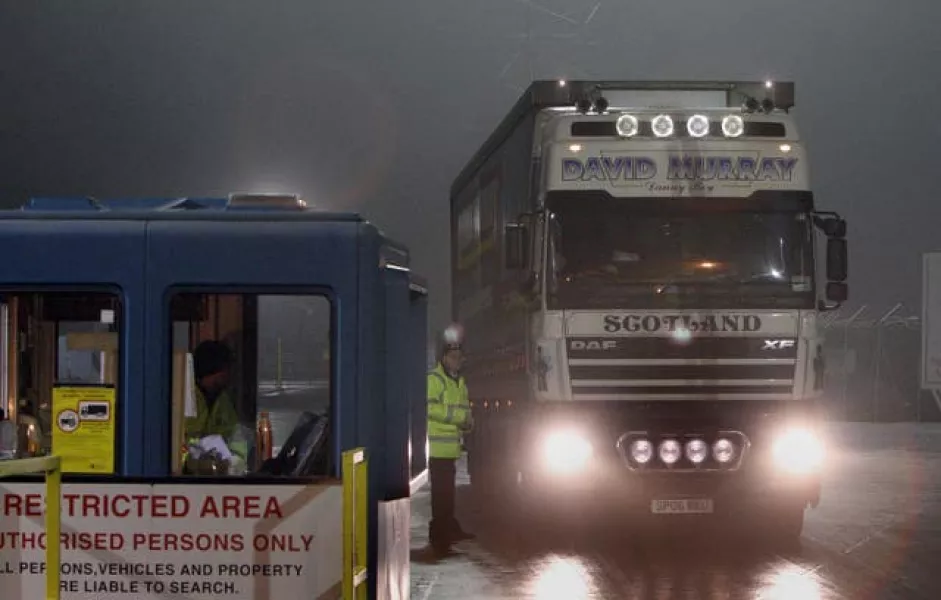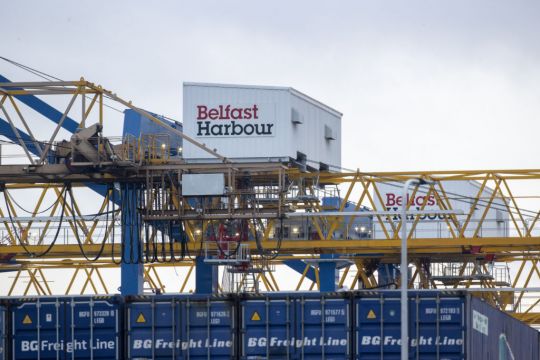The Northern Ireland Protocol will act as a “parachute” even if there is no deal in Brexit talks, the freight industry has said.
Negotiations between the EU and Britain over issues like the level playing field on standards will continue, European Commission president Ursula von der Leyen said today.
Under the Protocol, trade to Great Britain and the EU is protected.
Failure to reach agreement would result in “extra friction” on trade from Great Britain to Northern Ireland, said Seamus Leheny, policy manager for Logistics UK in Northern Ireland.
He added: “The Northern Ireland Protocol acts as a parachute for Northern Ireland in the event of a no-deal.
“But a no-deal will result in extra friction on Great Britain to Northern Ireland trade and raises issues on Northern Ireland to Great Britain.
“This is why we desperately need that deal.”
Under the Northern Ireland Protocol, trade in goods between Northern Ireland and Ireland, and between Northern Ireland and EU member states, will continue unaffected, with no change at the border, no new paperwork, and no tariffs or regulatory checks, official advice states.
It says: “At the end of the transition period, there will be no change for the movement of goods covered by the Protocol between Northern Ireland and EU member states, including Ireland.
“That means there will be no new paperwork; no tariffs, quotas or checks on rules of origin; nor any barriers to movement within the EU Single Market for goods in free circulation in Northern Ireland.
“No EU member state will be able to apply any tariff or related barriers to goods from Northern Ireland.”
The EU is obliged under Article 5 of the Protocol to guarantee tariff-free, frictionless access in any scenario from December 31 2020.
Guidance to businesses in Northern Ireland adds: “This does not just apply to movements from Northern Ireland to Ireland: it applies to movements to any other EU member state, including for example through the use of transit procedures.

“Northern Ireland businesses will have unfettered access to the whole of the UK market as well as the guaranteed ability to trade freely within the EU Single Market.
“In addition, any approvals or certifications secured in order to place goods on the market in the EU will be recognised when seeking to place the same goods on the market in the United Kingdom – avoiding the need for additional approvals to access the UK market.”
Ports on the English Channel have become busier over recent weeks ahead of the end of the transition period.
Manufacturing NI, which represents Northern Irish producers, said it had spoken with a business which paid 4,500 euros this week to bring a commodity from Germany to Glasgow.
It added: “On average, logistics costs increased £1,000 per journey as EU drivers can’t or are reluctant to travel to UK due to the congestion currently at Channel ports.”







